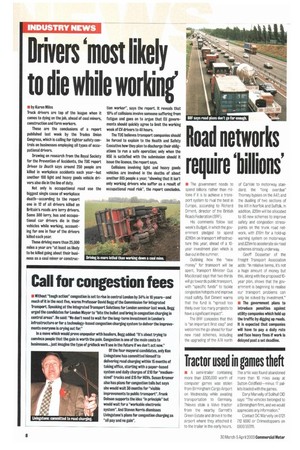Road networks require 'billions'
Page 10

If you've noticed an error in this article please click here to report it so we can fix it.
• The government needs to spend billions rather than millions if it is to achieve a transport System to rival the best in Europe, according to Richard Diment, director of the British Roads Federation (BRF).
His comments follow last week's Budget, in which the government pledged to spend £280m on transport infrastructure this year, ahead of a 10year investment plan which is due out in the summer.
Outlining how the "new money" for transport will be spent, Transport Minister Gus Macdonald says that two-thirds will go towards public transport, with "specific funds" to tackle congestion hotspots and improve road safety But Diment warns that the fund is "spread too thinly over too many projects to have a significant impact".
The BRF concedes that this is "an important first step" and welcomes the go-ahead for four new road schemes, including the upgrading of the 474 north
of Carlisle to motorway standard: the "long overdue" Thorney bypass on the A47; and the dualling of two sections of the All in Norfolk and Suffolk. In addition, £20m will be allocated to 80 new schemes to improve safety and congestion stresspoints on the trunk road network, with 116m for a hold-up warning system on motorways and £25m to accelerate six road schemes already underway.
Geoff Dossetter of the Freight Transport Association adds: "In relative terms, it's not a huge amount of money but this, along with the proposed 10year plan, shows that the government is beginning to realise our transport problems can only be solved by Investment."
• The government plans to Introduce penalties against utility companies which hold up the traffic by digging up roads. It is expected that companies will have to pay a daily rate and face heavy fines if work is delayed past a set deadline.
















































































































